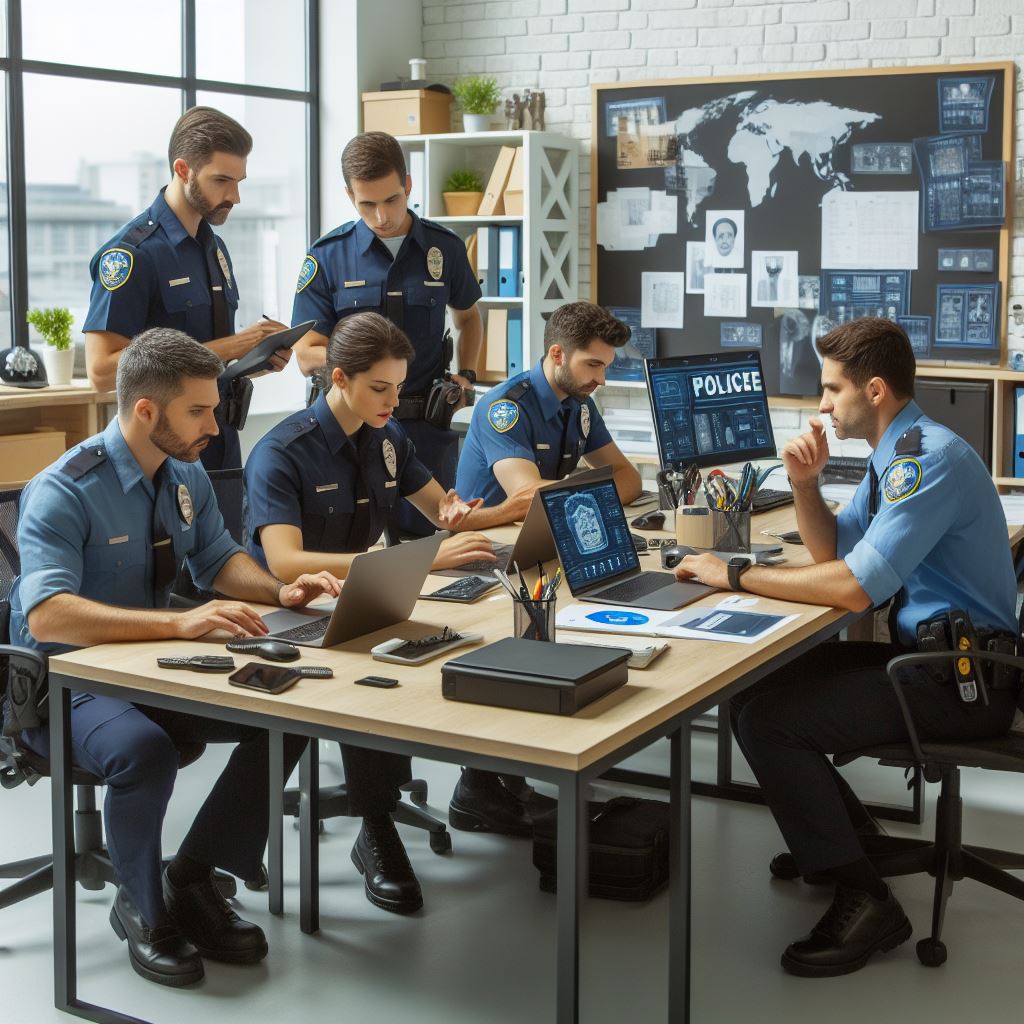Introduction
The world of diplomacy is one of perpetual motion and constant challenges.
For UK diplomats, the demands extend beyond traditional office hours, reaching into the realms of international affairs and intricate negotiations.
As we delve into the intricacies of the diplomatic profession, it becomes evident that the pursuit of a successful career is intricately tied to the ability to maintain a harmonious work-life balance.
Highlighting the Importance
Beyond the diplomatic protocols and high-stakes negotiations, the significance of a balanced work-life equilibrium cannot be overstated.
It forms the bedrock upon which personal well-being and professional efficacy rest.
The demanding nature of diplomatic service, often involving long hours, frequent travel, and exposure to high-pressure situations, underscores the need for a proactive approach to balance.
In the life of a UK diplomat, the importance of maintaining equilibrium extends beyond personal satisfaction; it directly impacts job performance.
A diplomat burdened by the weight of an imbalanced lifestyle may find it challenging to navigate the intricate landscape of international relations effectively.
In contrast, those who manage to strike the right chord between work and personal life often discover heightened resilience, creativity, and overall job satisfaction.
This blog section is poised to unravel the multifaceted nature of balancing work and life as a UK diplomat.
It aims to provide insights, strategies, and real-world experiences that can serve as a compass for diplomats seeking to excel in their professional roles while nurturing a fulfilling personal life.
Join us on this exploration of the delicate dance between the demands of diplomatic service and the imperative of maintaining a healthy, enriching life beyond the embassy walls.
Overview of the role of a UK diplomat
A UK diplomat is responsible for representing the United Kingdom and its interests abroad. They work in foreign countries and maintain diplomatic relationships between nations.
What does a UK diplomat do?
- They act as representatives of the UK government and promote British values and culture.
- They negotiate agreements and treaties with foreign governments on behalf of the UK.
- They provide consular services to British nationals living or traveling abroad.
- They gather and analyze information about political, economic, and social developments in the host country.
- They advise the UK government on foreign policy matters and provide recommendations.
- They support UK businesses and promote trade and investment opportunities.
Key responsibilities and duties of a UK diplomat
- Establishing and maintaining diplomatic relationships with the host country’s government and officials.
- Representing the UK’s interests in meetings, conferences, and negotiations.
- Providing assistance and support to UK citizens in times of crisis or emergencies abroad.
- Monitoring and reporting on political, economic, and social developments in the host country.
- Participating in cultural, educational, and promotional events to enhance bilateral relations.
- Reporting to the UK Foreign and Commonwealth Office on important developments and diplomatic activities.
- Analyzing and assessing the impact of international events on the UK’s foreign policy.
- Contributing to the formulation and implementation of foreign policy strategies.
- Collaborating with other UK government departments and agencies on specific diplomatic initiatives.
- Engaging in public diplomacy to enhance the UK’s reputation and influence abroad.
In summary, UK diplomats play a crucial role in advancing the UK’s interests, values, and national security globally.
Their responsibilities range from diplomacy and negotiation to consular assistance and policy advising.
They work under demanding conditions and often face long working hours, frequent travel, and the need to adapt to different cultures.
However, their work provides them with opportunities for personal growth, exposure to international affairs, and the chance to make a significant impact on the world stage.
Balancing work and life as a UK diplomat can be challenging due to the nature of the job, but with effective time management and support systems, it can be a rewarding and fulfilling career choice.
Read: UK Civil Service Pension Schemes
Challenges Faced by UK Diplomats in Balancing Work and Life
Being a UK diplomat is a prestigious and demanding job that requires individuals to represent their country’s interests abroad.
However, this role comes with its own set of challenges when it comes to balancing work and personal life.
The Demanding Nature of the Job
- UK diplomats have to constantly engage in diplomatic efforts, negotiations, and meetings.
- They are responsible for managing relationships with foreign governments and organizations.
- Handling critical global issues and supporting British citizens during emergencies are part of their duty.
- Attending social events, hosting official receptions, and representing the country at international conferences are also expected.
All of these responsibilities put immense pressure on diplomats, making it challenging to maintain a healthy work-life balance.
Long Working Hours and Unpredictable Schedules
- UK diplomats often work long and irregular hours, including weekends and public holidays.
- They need to be available at all times since diplomatic work can arise at any moment.
- Handling the time difference between countries and being on call can disrupt personal plans.
- It becomes difficult to plan or commit to activities or milestones in their personal lives.
These long hours and unpredictable schedules make it hard for diplomats to find time for themselves and their families.
Frequent Travels
- Due to the nature of their work, UK diplomats often have to travel extensively.
- International assignments and relocations can result in significant time away from their loved ones.
- Constant traveling can lead to physical and emotional exhaustion, affecting personal relationships.
- Family members, especially children, may struggle with adapting to new environments and schools.
While traveling can be exciting, it adds another layer of complexity to the already challenging task of balancing work and personal life.
High Levels of Stress and Pressure
- Diplomatic work involves high-stakes negotiations and decision-making processes.
- The pressure to represent the country’s interests and maintain diplomatic relations can be overwhelming.
- Dealing with sensitive information and diplomatic crises can take a toll on diplomats’ mental health.
- The constant need to be diplomatic and tactful in interactions adds to the stress levels.
These high levels of stress can spill over into personal life, affecting relationships and overall well-being.
Strategies for Balancing Work and Life
Despite the challenges, UK diplomats can employ various strategies to maintain a semblance of work-life balance:
- Setting boundaries and prioritizing personal time to engage in activities that bring joy and relaxation.
- Communicating openly with family members about the demands of the job and finding ways to support each other.
- Establishing a routine that allows for exercise, self-care, and quality time with loved ones.
- Exploring flexible work arrangements, such as telecommuting or compressed workweeks, where feasible.
- Seeking support from colleagues, mentors, and counselors to manage stress and maintain mental well-being.
By implementing these strategies, UK diplomats can strive to strike a balance between their demanding careers and personal lives, leading to greater overall satisfaction and well-being.
Read: Navigating Cultural Differences: Tips from UK Diplomats
Personalized UK Career Consulting
Receive tailored career guidance designed just for you. Get actionable steps and expert support to boost your career in 1-3 days. Take control of your career now.
Get StartedDiscover More: Social Media’s Impact on UK Political Careers
Strategies for achieving a work-life balance as a UK diplomat
Creating a work-life balance as a UK diplomat is crucial to maintaining productivity, happiness, and overall well-being.
The demanding nature of diplomatic work often requires diplomats to be available and committed to their roles at all times.
However, it is essential to set clear boundaries and prioritize personal life to prevent burnout and maintain a healthy work-life balance.
1. Setting boundaries and priorities
- Setting clear boundaries between work and personal life is crucial for maintaining a healthy work-life balance.
- It is important to emphasize the need to prioritize self-care and make time for family.
Setting boundaries allows diplomats to distinguish between their professional and personal lives.
By doing so, they can allocate specific time for themselves and their loved ones, creating a sense of harmony.
It is important to communicate these boundaries to colleagues and superiors, as they need to understand and respect the diplomat’s need for personal time.
Furthermore, prioritizing self-care and family time is crucial for diplomats to maintain their well-being.
By making self-care a priority, diplomats can engage in activities that rejuvenate them physically, mentally, and emotionally.
Taking breaks, pursuing hobbies, and spending quality time with family and friends are all important aspects of self-care.
Prioritizing family time is equally important, as it allows diplomats to nurture relationships and create a support system outside of work.
2. Effective time management
- Managing and prioritizing tasks effectively is key to achieving a work-life balance.
- Explore time management techniques such as time blocking and delegation to increase productivity and reduce stress.
Effective time management is another key strategy for achieving a work-life balance.
Diplomats should prioritize their tasks and divide their time efficiently to maximize productivity and minimize stress.
Time blocking, where diplomats dedicate specific time slots for different tasks, can help create structure and prevent work from overflowing into personal time.
Delegation is also important, as it enables diplomats to distribute tasks and responsibilities, promoting efficiency and reducing workload.
3. Building a support network
- Having a strong support network, including family, friends, and colleagues, is significant for diplomats.
- Encourage diplomats to reach out for help and support when needed, as it can alleviate stress and provide guidance.
Building a support network is essential for diplomats to navigate the challenges of their profession. Family, friends, and colleagues can provide emotional support, advice, and understanding.
It is crucial for diplomats to reach out for help and support when needed, as bottling up stress and pressure can lead to burnout.
Having a strong support network can offer a sense of belonging and comfort, making the work-life balance easier to achieve.
4. Maintaining physical and mental well-being
- Regular exercise, proper nutrition, and sufficient sleep are essential for diplomats to stay physically and mentally healthy.
- Discuss the benefits of mindfulness practices and stress reduction techniques for managing work-related pressures.
Maintaining physical and mental well-being is vital for diplomats to perform their duties effectively.
Regular exercise not only improves physical health but also releases endorphins, reducing stress and promoting overall well-being.
A balanced and nutritious diet provides the necessary fuel for diplomats to stay energized and focused.
Sufficient sleep is equally important, as it allows the body and mind to rest and recharge.
Additionally, practicing mindfulness and stress reduction techniques, such as meditation and deep breathing, can help diplomats manage work-related pressures and maintain a calm and centered state of mind.
5. Taking advantage of available resources and support
- Mention the support services and resources provided by the UK government specifically for diplomats.
- Inform diplomats about available employee assistance programs and counseling services that can offer additional support.
The UK government provides various support services and resources specifically for diplomats.
These services aim to assist diplomats in managing their work-life balance and provide support for personal and professional challenges.
Diplomats should take advantage of these resources, such as workshops, counseling services, and wellness programs, to ensure their well-being and enhance their work-life balance.
Employee assistance programs can also offer confidential counseling and support, helping diplomats navigate personal and work-related issues.
In general, achieving a work-life balance as a UK diplomat requires setting boundaries, effective time management, building a support network, maintaining physical and mental well-being, and utilizing available resources.
By implementing these strategies, diplomats can excel in their professional roles while enjoying a fulfilling personal life.
Read: Civil Service vs Private Sector: UK

Tips for achieving a healthy work-life balance as a UK diplomat
Now that we have understood the importance of work-life balance for UK diplomats, let’s delve into some practical tips and advice to help you maintain this delicate equilibrium.
1. Prioritize and set realistic goals
- Identify what truly matters to you, both in your professional and personal life.
- Set achievable goals that align with your priorities.
- Learn to say no to tasks or commitments that don’t contribute to your overall well-being.
2. Create boundaries
- Separate your work and personal life as much as possible.
- Define specific hours for work and ensure you fully disconnect outside those hours.
- Establish boundaries with colleagues and make it clear when you are off-duty.
3. Practice efficient time management
- Utilize time-boxing techniques to allocate specific time to different tasks.
- Delegate tasks whenever possible to lighten your workload.
- Avoid multitasking, as it often leads to reduced productivity and increased stress.
4. Take care of your well-being
- Make self-care a priority by ensuring proper sleep, exercise, and nutrition.
- Engage in activities that bring you joy and help you relax.
- Consider mindfulness practices to reduce stress and improve focus.
5. Nurture your personal relationships
- Devote quality time to your loved ones and maintain strong connections with them.
- Communicate openly with your family and friends about your work demands and commitments.
- Plan regular activities or vacations together to create cherished memories.
6. Seek support and delegate
- Don’t hesitate to ask for help when needed, both in your personal and professional life.
- Build a reliable support network that can assist you during challenging times.
- Delegate tasks at work to trusted colleagues, allowing you to focus on priorities.
7. Maintain a positive mindset
- Cultivate a positive attitude towards your work and personal life.
- Practice gratitude for the opportunities and relationships you have.
- Stay optimistic during difficult periods, knowing that balance is achievable with dedication.
8. Regularly reassess and adjust
- Periodically evaluate your work-life balance and make adjustments as needed.
- Adapt to changing circumstances and be flexible with your strategies.
- Learn from the challenges you face and continuously improve your approach.
It is important to remember that achieving a work-life balance requires effort, but the rewards are significant.
By implementing these tips and consistently prioritizing your well-being, you can excel both professionally and personally as a UK diplomat.
In the next section, we will explore the long-term benefits of maintaining a healthy work-life balance and how it contributes to a successful diplomatic career.
Read: Interview Tips for UK Civil Service
Conclusion
In this blog section, we have discussed the challenges and strategies to balance work and life as a UK Diplomat. It is crucial to achieve this balance to lead a fulfilling and satisfying career.
As UK diplomats, our work is demanding and often requires long hours and frequent travel. However, it is essential not to lose sight of our personal lives and well-being.
Your Dream Job Starts with a Perfect CV
Get a tailored CV and cover letter that captures your unique strengths and stands out in your industry. Let us help you make an unforgettable first impression.
Get StartedWe have explored various strategies such as setting boundaries, prioritizing self-care, and leveraging available resources. These tactics can help us maintain a healthy work-life balance and excel in our roles.
Achieving a work-life balance is not only beneficial for our personal well-being but also for our professional growth and effectiveness as diplomats.
It allows us to recharge, be more productive, and maintain strong relationships.
I encourage all readers, not just UK diplomats, to implement the strategies and tips discussed in this section. By doing so, you can enhance your own work-life balance and lead a more fulfilling life.
Remember, balance is a continuous effort, and it requires commitment and active management. Prioritize your well-being and personal life alongside your professional responsibilities.
Strive for harmony and make time for the things that matter most to you.
In the end, maintaining a work-life balance is essential for UK diplomats and everyone else.
It is not an easy feat, but with diligence and a mindful approach, it is possible to achieve this balance and thrive in both personal and professional aspects of life.
[E-Book for Sale]
500 Cutting-Edge Tech Startup Ideas for 2024 & 2025: Innovate, Create, Dominate
$19.99 • 500 Tech Startup Ideas • 62 pages
You will get inspired with 500 innovative tech startup ideas for 2024 and 2025, complete with concise descriptions to help you kickstart your entrepreneurial journey in AI, Blockchain, IoT, Fintech, and AR/VR.




